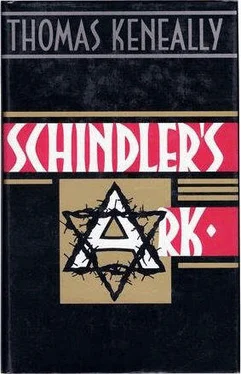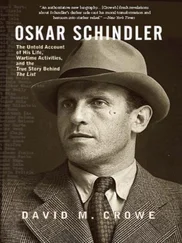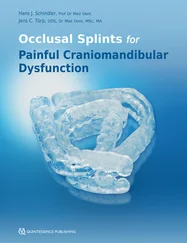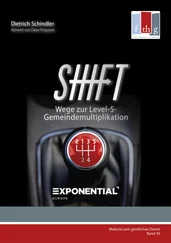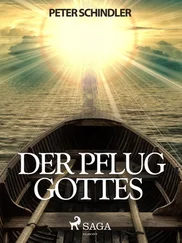There were secretariats for food, cemeteries, health, travel documentation, economic affairs, administrative services, culture, even—in the face of the ban on schooling—of education.
Biberstein and his council believed on principle that the Jews who were expelled from Cracow would end up in worse places, and so they decided to fall back on an ancient stratagem: bribery. The hard-up Judenrat treasury allocated 200,000 złoty for the purpose. Biberstein and the Housing Secretary, Chaim Goldfluss, had sought out an intermediary, in this case a Volksdeutscher named Reichert, a man who had contacts in the SS and the city administration. Reichert’s task was to pass on the money to a series of officials beginning with Obersturmführer (an SS rank equivalent to first lieutenant) Seibert, the liaison officer between the Judenrat and the city government. In return for the money, the officials were to permit another 10,000 Jews of the Cracow community to remain at home, despite Frank’s order. Whether Reichert had insulted officials by retaining too large a percentage for himself and making too low an offer, or whether the gentlemen involved felt that Governor Frank’s most cherished ambition to render his city judenfrei made the taking of bribes too perilous, no one could tell from the court proceedings. But Biberstein had got two years in Montelupich, Goldfluss six months in Auschwitz. Reichert himself had got eight years. Yet everyone knew he would have a softer time of it than the other two.
Schindler shook his head at the idea of putting 200,000 złoty on such a fragile hope.
“Reichert is a crook,” he murmured. Just ten minutes before, they had been discussing whether he and the C’s were crooks and had let the question stand. But there was no doubt about Reichert. “I could have told them Reichert was a crook,” he kept insisting.
Stern commented—as a philosophic principle—that there were times when the only people left to do business with were crooks.
Schindler laughed at that—a wide, toothy, almost rustic laugh. “Thank you very much, my friend,” he told Stern.
It wasn’t such a bad Christmas that year. But there was a wistfulness, and snow lay like a question in the parkland across from Schindler’s apartment, like something posed, watchful and eternal, on the roof of the Wawel up the road and under the ancient facades of Kanonicza Street. No one believed anymore in a quick resolution—neither the soldiery nor the Poles nor the Jews on either side of the river.
For his Polish secretary Klonowska, that Christmas, Schindler bought a poodle, a ridiculous Parisian thing, acquired by Pfefferberg. For Ingrid he bought jewelry and sent some also to gentle Emilie down in Zwittau. Poodles were hard to find, Leopold Pfefferberg reported. But jewelry was a snap. Because of the times, gems were in a high state of movement.
Oskar seems to have pursued his simultaneous attachments to three women and sundry casual friendships with others, all without suffering the normal penalties that beset the womanizer. Visitors to his apartment cannot remember ever finding Ingrid sulking. She seems to have been a generous and complaisant girl. Emilie, with even greater grounds for complaint, had too much dignity to make the scenes Oskar richly deserved. If Klonowska had any resentment, it does not seem to have affected her manner in the front office of DEF nor her loyalty to the Herr Direktor. One could expect that in a life like Oskar’s, public confrontations between angry women would be commonplace. But no one among Oskar’s friends and workers—witnesses willing enough to admit and even in some cases chuckle over his sins of the flesh—remembers such painful confrontations, so often the fate of far more restrained philanderers than Oskar.
To suggest as some have that any woman would be pleased with partial possession of Oskar is to demean the women involved. The problem was, perhaps, that if you wanted to talk to Oskar about fidelity, a look of childlike and authentic bewilderment entered his eyes, as if you were proposing some concept like Relativity which could be understood only if the listener had five hours to sit still and concentrate. Oskar never had five hours and never understood.
Except in his mother’s case. That Christmas morning, for his dead mother’s sake, Oskar went to Mass at the Church of St. Mary. There was a space above the high altar where Wit Stwosz’s wooden tryptych had until weeks ago diverted worshipers with its crowd of jostling divinities. The vacancy, the pallor of the stone where the tryptych’s fixings had been, distracted and abashed Herr Schindler. Someone had stolen the tryptych. It had been shipped to Nuremberg. What an improbable world it had become!
Business was wonderful that winter just the same. In the next year his friends in the Armaments Inspectorate began to talk to Oskar about the possibility of opening a munitions division to manufacture antitank shells. Oskar was not as interested in shells as in pots and pans. Pots and pans were easy engineering. You cut out and pressed the metal, dipped it in the tubs, fired it at the right temperature. You didn’t have to calibrate instruments; the work was nowhere near as exacting as it would be for arms. There was no under-the-counter trade in shell casings, and Oskar liked under-the-counter—liked the sport of it, the disrepute, the fast returns, the lack of paperwork.
But because it was good politics, he established a munitions section, installing a few immense Hilo machines, for the precision pressing and tooling of shell casings, in one gallery of his No. 2 workshop. The munitions section was so far developmental; it would take some months of planning, measuring, and test production before any shells appeared. The big Hilos, however, gave the Schindler works, as a hedge against the questionable future, at least the appearance of essential industry.
Before the Hilos had even been properly calibrated, Oskar began to get hints from his SS contacts at Pomorska Street that there was to be a ghetto for Jews. He mentioned the rumor to Stern, not wanting to arouse alarm. Oh, yes, said Stern, the word was out. Some people were even looking forward to it. We’ll be inside, the enemy will be outside. We can run our own affairs. No one will envy us, no one stone us in the streets. The walls of the ghetto will be fixed. The walls would be the final, fixed form of the catastrophe.
The edict, “Gen. Gub. 44/91,” posted on March 3, was published in the Cracow dailies and blared forth from loudspeakers on trucks in Kazimierz. Walking through his munitions department, Oskar heard one of his German technicians comment on the news. “Won’t they be better off in there?” asked the technician. “The Poles hate them, you know.”
The edict used the same excuse. As a means of reducing racial conflict in the Government General, a closed Jewish quarter would be set up. Enclosure in the ghetto would be compulsory for all Jews, but those with the proper labor card could travel from the ghetto to work, returning in the evening. The ghetto would be located in the suburb of Podgórze just across the river. The deadline for entering it would be March 20. Once in, you would be allocated housing by the Judenrat, but Poles presently living in the area of the ghetto and who therefore had to move were to apply to their own housing office for apartments in other parts of town.
A map of the new ghetto was appended to the edict. The north side would be bounded by the river, the east end by the railway line to Lwów, the south side by the hills beyond Rekawka, the west by Podgórze Place. It would be crowded in there.
But there was hope that repression would take definite form now and provide people with a basis on which to plan their restricted futures. For a man like Juda Dresner, a textile wholesaler of Stradom Street who would come to know Oskar, the past year and a half had brought a bewildering succession of decrees, intrusions, and confiscations. He had lost his business to the Trust Agency, his car, his apartment. His bank account had been frozen. His children’s schools had been closed, or else they had been expelled from them.
Читать дальше
